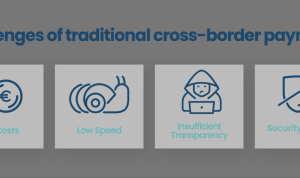How Online Payment Systems Work opens the door to a world where transactions are seamless and efficient, bridging gaps between buyers and sellers effortlessly. In an era marked by digital transformation, understanding these systems is essential for both consumers and businesses. They serve as the backbone of e-commerce, enabling quick exchanges of money while ensuring security and convenience. This overview unravels the mechanics behind these systems, shedding light on their operation and significance in our daily lives.
From credit cards to digital wallets, online payment systems have evolved significantly, employing various technologies to facilitate cashless transactions. By integrating secure networks and innovative software, these systems streamline the purchasing process, enhance user experience, and provide a layer of trust in financial exchanges. As we delve deeper, we’ll explore the different types of payment methods, the technology that powers them, and the future of digital payments.
In today’s fast-paced digital world, the importance of effective communication cannot be overstated. Whether in personal interactions or professional settings, the way we convey our thoughts and ideas significantly impacts our relationships and overall success. This article explores various facets of communication, including its definitions, types, and the skills necessary to enhance it, while also providing practical tips on how to improve your communication abilities in daily life.To begin, let’s define what communication is.
At its core, communication is the process of exchanging information, ideas, thoughts, and feelings between individuals or groups. This exchange can occur through various mediums, such as spoken or written words, body language, and even facial expressions. It is essential to recognize that communication is not merely about talking; it also involves listening, understanding, and responding appropriately.There are several types of communication, broadly categorized into verbal, non-verbal, and written communication.
Verbal communication involves the use of spoken language to convey messages and is often characterized by tone, pitch, and volume. Non-verbal communication, on the other hand, encompasses body language, gestures, posture, and facial expressions, which can significantly affect how messages are interpreted. Written communication includes emails, reports, text messages, and any other form of message that is conveyed through written words.Each type of communication plays a crucial role in our day-to-day interactions.

For instance, verbal communication allows for immediate feedback and clarification, enabling a dynamic exchange of ideas. Non-verbal communication adds depth to the verbal message, often conveying emotions and attitudes that words alone cannot express. Written communication, while less immediate, provides a record of information and allows for more thoughtful consideration of the message being conveyed.Now that we have a better understanding of what communication is, let’s delve into the essential skills required for effective communication.
Active listening is perhaps one of the most critical skills in this regard. It involves fully concentrating on the speaker, understanding their message, responding thoughtfully, and remembering key points. Active listening fosters an environment of trust and respect, making it easier for individuals to share their thoughts openly.Another vital skill is clarity and conciseness. When delivering a message, it is essential to be clear and straightforward to avoid misunderstandings.
This means choosing the right words and structuring your thoughts logically. Additionally, being concise helps keep the listener’s attention and ensures that the core message is not lost in unnecessary details.Empathy is also a significant element of effective communication. This skill allows individuals to understand and share the feelings of others. By putting yourself in someone else’s shoes, you can respond in a way that acknowledges their emotions and perspectives, which can lead to more meaningful conversations.Furthermore, adaptability is crucial in communication.
Different situations and audiences may require varying approaches. Being able to adjust your communication style based on the context and the people you are interacting with can greatly enhance your effectiveness. For instance, the way you communicate with colleagues in a formal meeting may differ from how you interact with friends at a casual gathering.In addition to these skills, there are several practical tips you can incorporate into your daily life to enhance your communication abilities.
First, practice active listening. This can be as simple as maintaining eye contact, nodding in agreement, and summarizing what the speaker has said to ensure you understand their points. Also, avoid interrupting; let the speaker finish their thoughts before you respond.Secondly, be conscious of your body language. Non-verbal cues can sometimes speak louder than words. Ensure that your body language aligns with your verbal messages.
For example, crossing your arms may signal defensiveness, while an open posture can convey openness and receptivity.Thirdly, consider your audience before communicating. Tailoring your message to suit the audience’s level of understanding and interest can lead to more effective communication. Whether you are addressing a group of professionals or a group of friends, adjusting your language and examples to resonate with them can make a significant difference.Another valuable tip is to seek feedback.
After presenting an idea or opinion, ask the listener for their thoughts. This not only helps you gauge their understanding but also allows you to refine your communication style based on their responses.Moreover, practice makes perfect. Take every opportunity to engage in conversations, whether in formal settings such as meetings or informal gatherings. The more you practice, the more comfortable you will become with expressing yourself clearly and effectively.Finally, consider the role of technology in communication today.
With the rise of digital platforms, the way we communicate has evolved significantly. Social media, video conferencing, and instant messaging have transformed our interactions, making it crucial to adapt our communication styles to these platforms. Understanding the nuances of online communication, such as tone and brevity, can enhance your effectiveness in this realm.In conclusion, effective communication is an essential skill that can greatly influence personal and professional success.
By understanding the different types of communication and honing your skills in active listening, clarity, empathy, and adaptability, you can enhance your interactions with others. Remember to practice regularly and seek feedback to continuously improve. In a world where communication is key, investing time and effort into developing these abilities will undoubtedly pay off in the long run.





